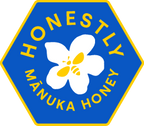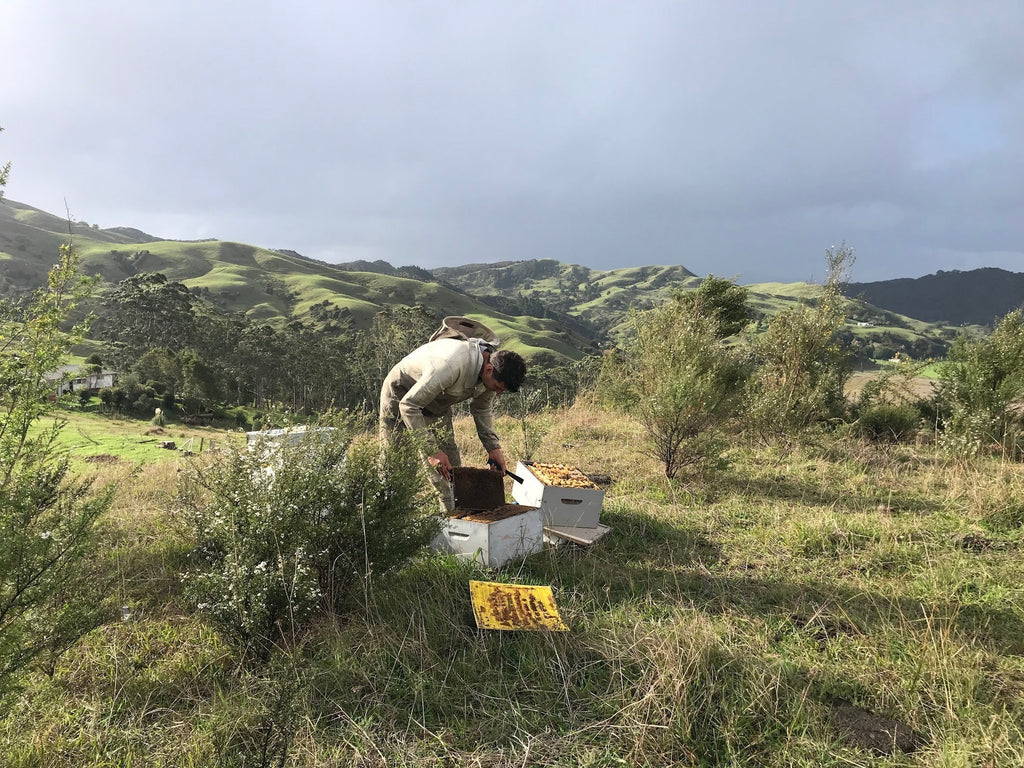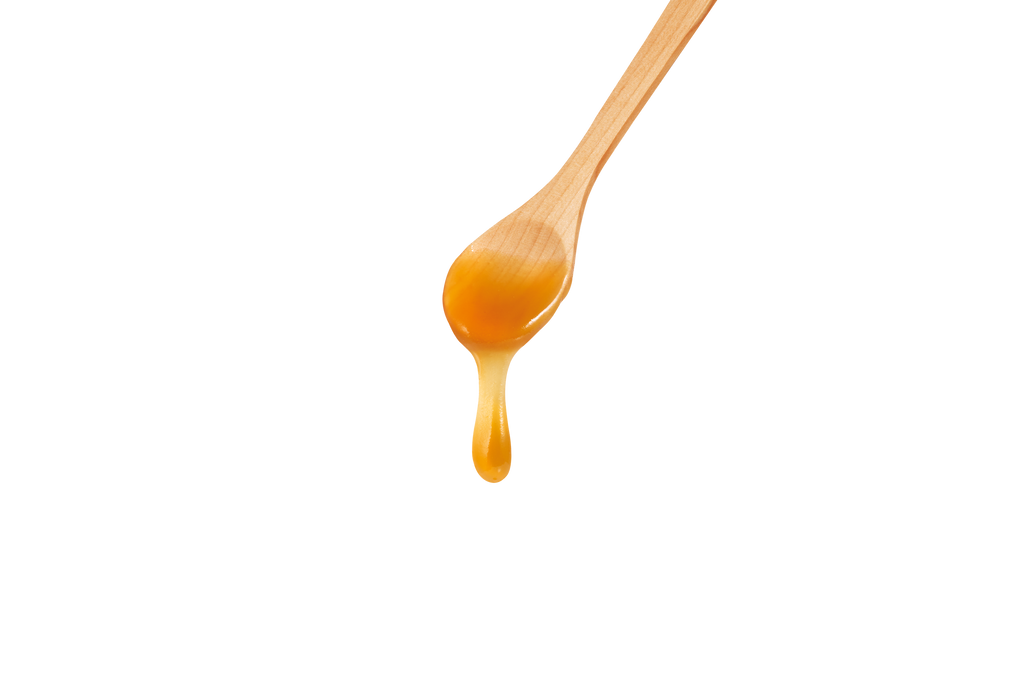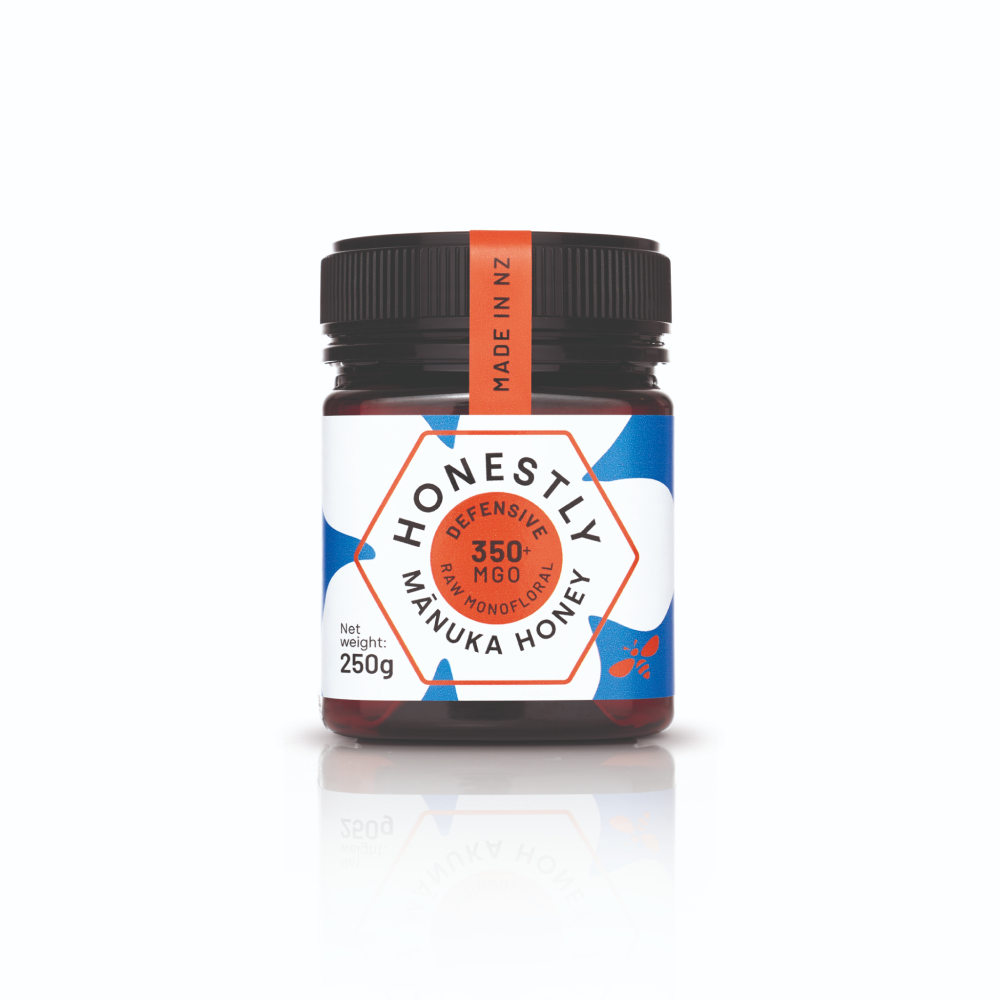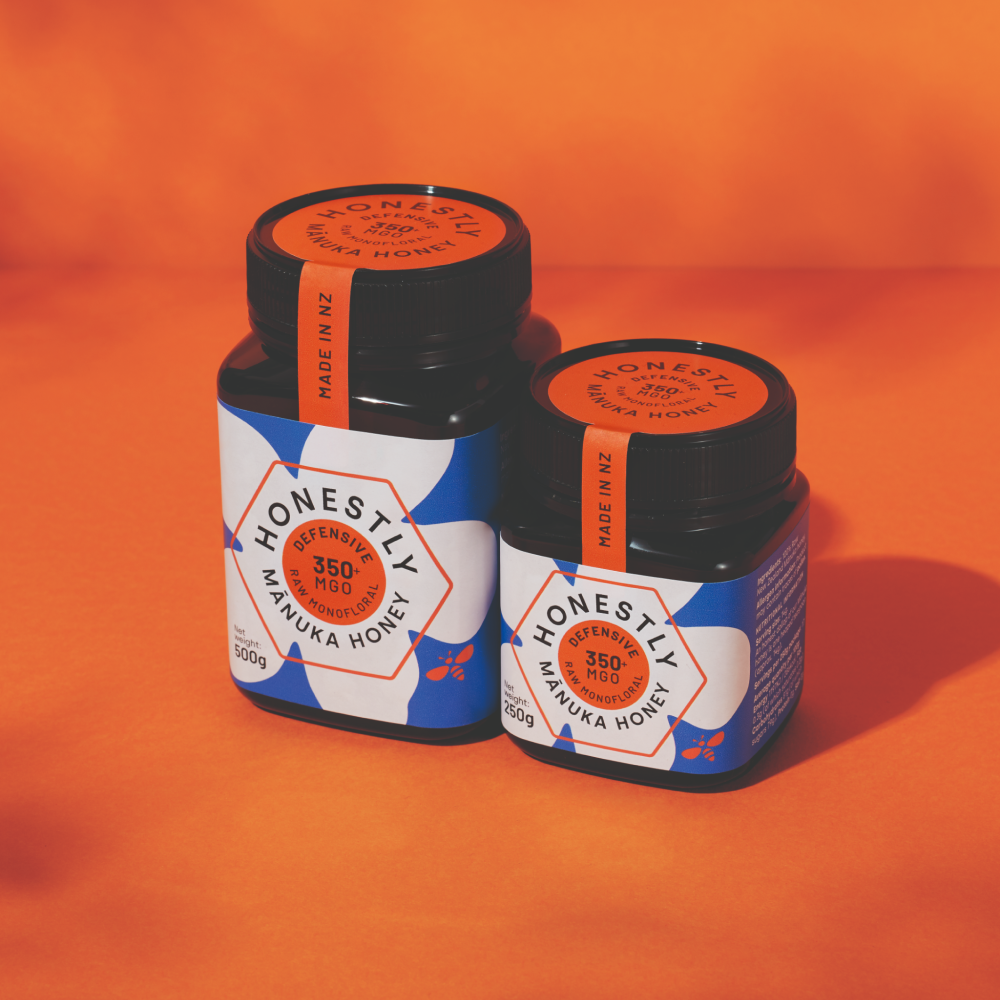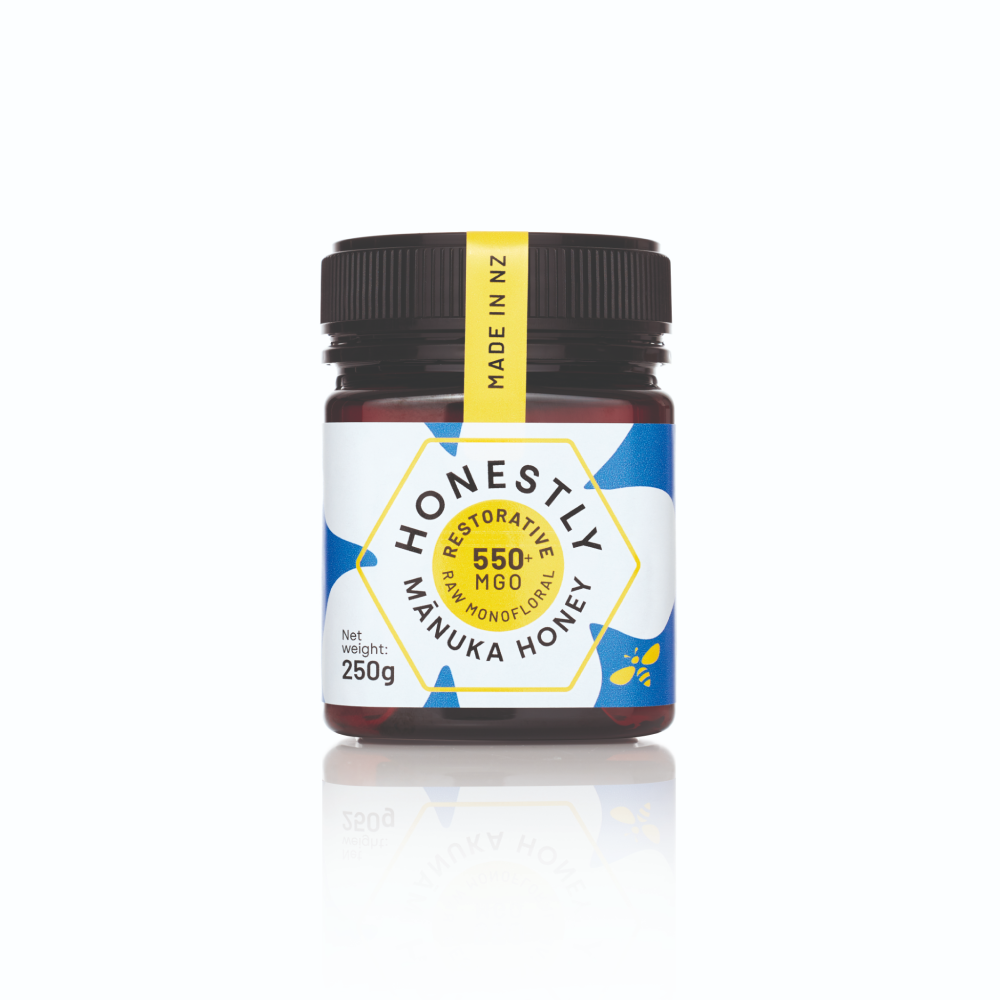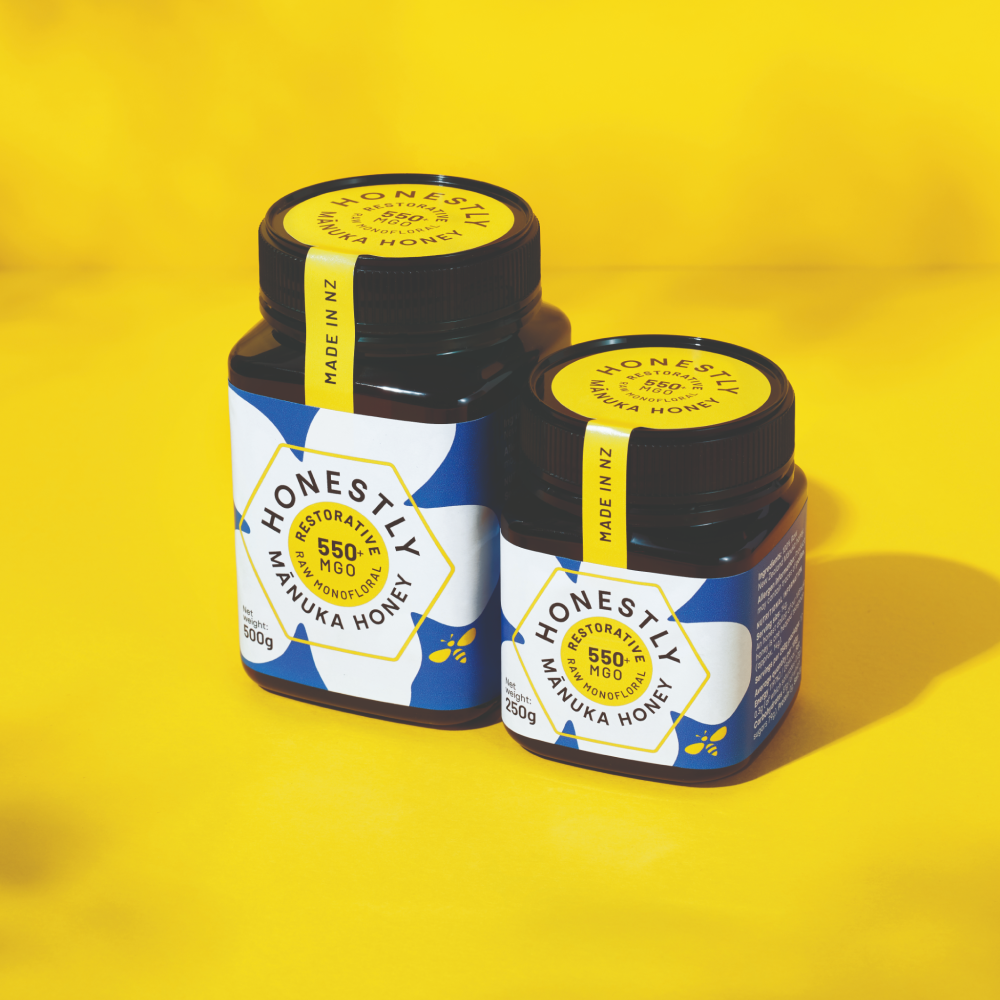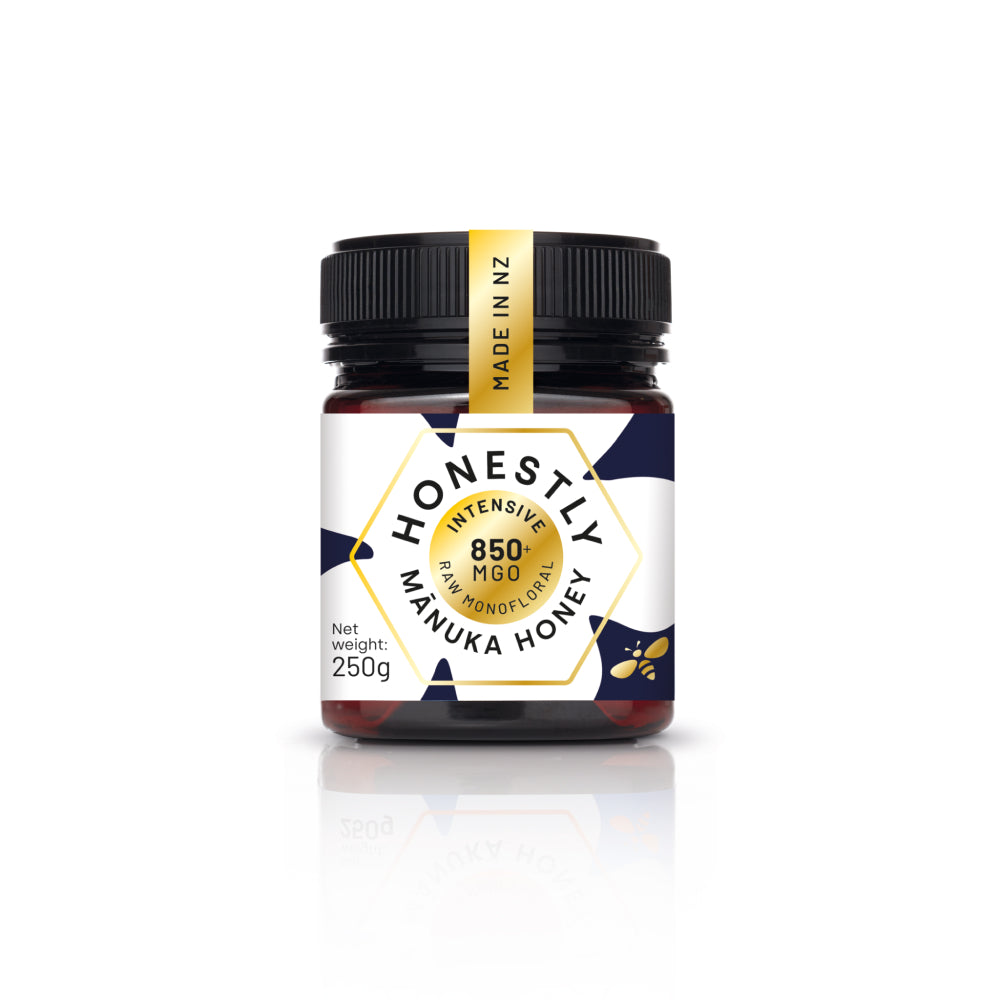Why Mānuka Honey Tastes Different (and Why You’ll Love It)
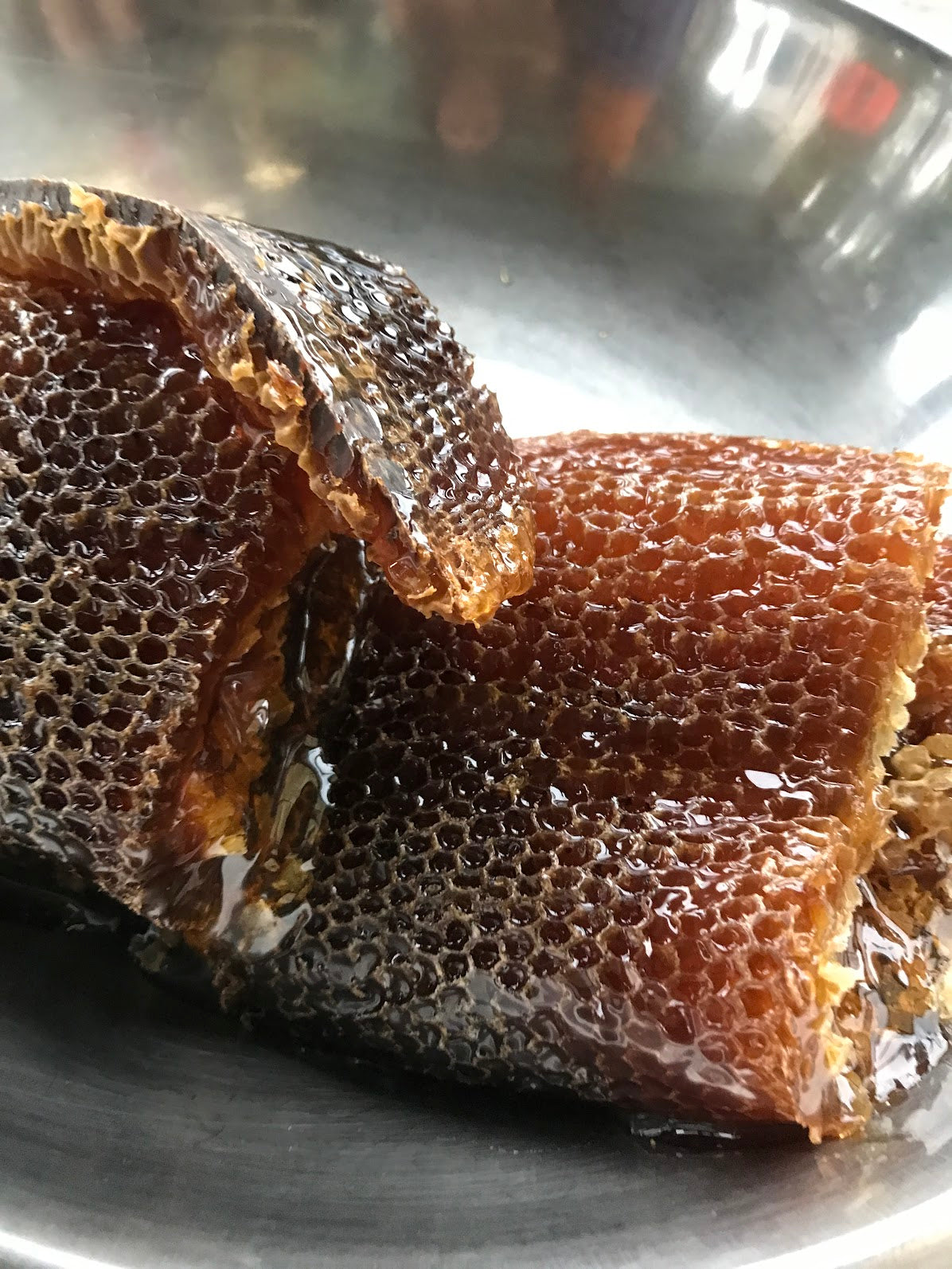
Honestly? Mānuka honey isn’t your average squeeze-bottle sweetness - and that’s exactly why we love it.
Its taste is earthy, complex, and a little unexpected. That’s because it comes from the wild Mānuka flower, found only in New Zealand, and it’s packed with rare natural compounds you won’t find in other honey. Every spoonful tells the story of the land, the bees, and the slow, mindful harvest behind it.
So… Why Does Mānuka Honey Taste So Different?
It all starts with the Mānuka bush (Leptospermum scoparium) - a rugged native plant that flowers just a few weeks a year. Bees forage on this nectar, and the honey they create is unlike anything else:
-
Richer and less sweet than supermarket honey.
-
Slightly bitter or herbal with a warm, tingly finish
-
Thicker in texture - almost caramel-like.
Some say it’s medicinal. Others call it earthy, bold, or even smoky. But one thing’s for sure: it’s not boring.
And if you’re used to regular clover or wildflower honey? This is like going from pop music to jazz - deeper, more complex, and full of character.
What You’re Really Tasting: MGO and Nature Doing Its Thing
One of the reasons Mānuka honey is so unique is MGO (methylglyoxal) - the naturally occurring compound that gives it both its flavour and its famous antibacterial strength.
MGO adds that slightly tangy, lingering kick - and the higher the MGO rating on the jar, the stronger the taste (and the stronger the benefits).
At Honestly, we don’t blend or dilute anything. What you taste is real:
-
Pure, monofloral Mānuka.
-
Harvested slow and raw.
-
Certified and traceable back to the hive.
Will I Like It?
If you like real food with a story behind it - yes.
If you prefer sweetness without substance - maybe not (yet).
But here’s what we’ve seen: even people who are unsure at first come to love Mānuka. It becomes a ritual. A daily dose of something that actually feels like it’s doing something. And once you’re into it, you don’t want anything else.
How to Try It
We recommend starting simple:
-
Off the spoon (our favourite way).
-
Stirred into warm water with lemon.
-
Swirled into yoghurt or oats.
-
Paired with cheese and crackers for an earthy, sweet-savoury bite.
Not sure which strength to try first? MGO 350+ is a great all-rounder. You’ll get the full flavour and benefit, without jumping straight into the deep end. You can shop it here.
A Taste That Grows on You - and Gives Back
When you taste Honestly Mānuka, you’re tasting:
-
The wild landscapes of Northland, New Zealand.
-
Bees doing their work, untouched and undisturbed.
-
A commitment to ethical beekeeping and fair pay.
-
A honey that’s as real as the people behind it.
It’s not just good for your body. It’s good for the planet, the pollinators, and the communities that make it possible.
🙋Frequently Asked Questions
Why does Mānuka taste so different from regular honey?
It’s made from a single native flower, rich in MGO and phenolic compounds. The result is earthy, bold, and far from ordinary.
Does higher MGO mean stronger taste?
Yes - the higher the MGO, the stronger (and more complex) the flavour. It’s also a sign of stronger antibacterial benefits.
Can I still use it in tea or cooking?
Absolutely. Just avoid boiling temperatures if you want to preserve its natural enzymes and potency. Add it last.
What if I don’t like it right away?
Totally normal. Many people find it grows on them. Try pairing it with yoghurt, oats, or lemon water — and give it time.
💬 Final Thought: It Tastes Different - Because It Is Different
Mānuka isn’t for everyone - and that’s kind of the point. It’s real, raw, untamed, and unapologetically powerful. The taste might surprise you at first… but for those who stick around, it becomes a daily ritual they wouldn't trade for anything.
Because when flavour tells the truth, you know you're doing something good - for your body, your palate, and the planet.
💛 You Might Also Like…
🔥 Why You Shouldn’t Put Mānuka Honey in Boiling Water (and What to Do Instead)
Hot tip: keep the heat low. Learn how to enjoy Mānuka in drinks without killing off its natural power.
🌼 Mānuka Honey for Seasonal Allergies: Can It Really Help?
Sniffles? Sneezes? Here’s what the research says about using Mānuka to support your immune system during allergy season.
